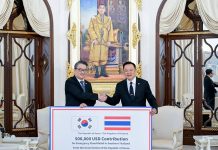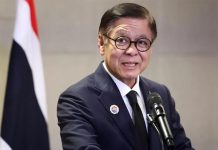TOKYO, April 21 — Thailand has pledged full support to Japan as a strategic partner in the sustainable co-development of the Mekong River delta to strengthen economies of the countries in the Greater Mekong Sub-region (GMS), according to Thai Prime Minister Yingluck Shinawatra.
Ms Yingluck, at a joint press conference with leaders of Cambodia, Laos, Vietnam, Myanmar and Japan after the 4th Mekong-Japan Summit, said that the summit was considered an important mechanism to boost regional economic strength.
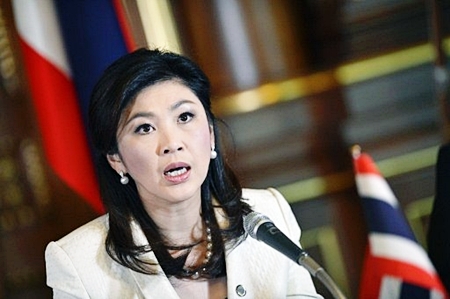
The 4th Mekong-Japan Summit was held in Tokyo which, along with Ms Yingluck, was attended by Cambodian Prime Minister Hun Sen, Lao Prime Minister Thongsing Thammavo, Vietnamese Prime Minister Nguyen Tan Dung, Myanmar’s President Thein Sein and chaired by Japanese Prime Minister Yoshihiko Noda.
Ms Yingluck said that Thailand has always supported neighbouring countries and development in the GMS, and would like to propose joint Thai-Japanese development projects for the expansion of cooperation on East-West Economic Corridor and Southern Economic Corridor developments to be a genuine economic corridor and be able to respond to risks from flood and other natural disasters in the future.
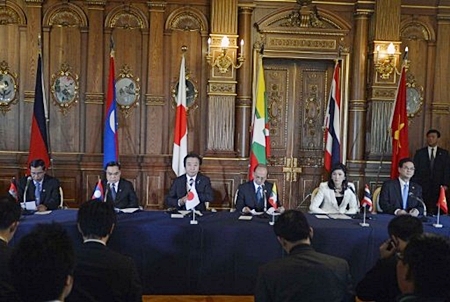
As for the Southern Economic Corridor, the Thai premier has invited Japan to support and participate in the development of the Dawei deep sea port in Myanmar as Thailand would allocate a budget for the construction of a highway to link Bangkok with the Thai-Myanmar border provinces, which would eventually connect the route between the Andaman Sea and South China Sea under the Southern Economic Corridor.
The Thai prime minister has proposed Thailand and Japan jointly organise a training programme to upgrade the competitiveness of the SMEs in GMS.
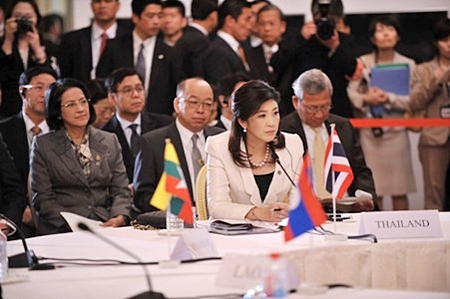
Ms Yingluck added that Thailand has emphasised for its police to provide assistance to neighbouring countries and this year, it has allocated US$77 million towards infrastructure development and technical assistance for the prosperity of the region.
At the 4th summit, the leaders has reviewed the implementation of programmes and projects under the 63-point Action Programme, the Mekong-Japan Economic and Industrial Cooperation Initiative (MJ-CI) and the Green Mekong Initiative.
They have also adopted the “Tokyo Strategy for Mekong-Japan Cooperation” as a foundation for Mekong-Japan cooperation for the next three years, from 2013 to 2015, focusing on promoting communications between the GMS, cooperation for mutual development, and methods of ensuring security and protecting the environment.
The summit follows the 3rd Mekong-Japan Summit in Bali, Indonesia in November of last year which focused on natural disaster responses and water resources management.


